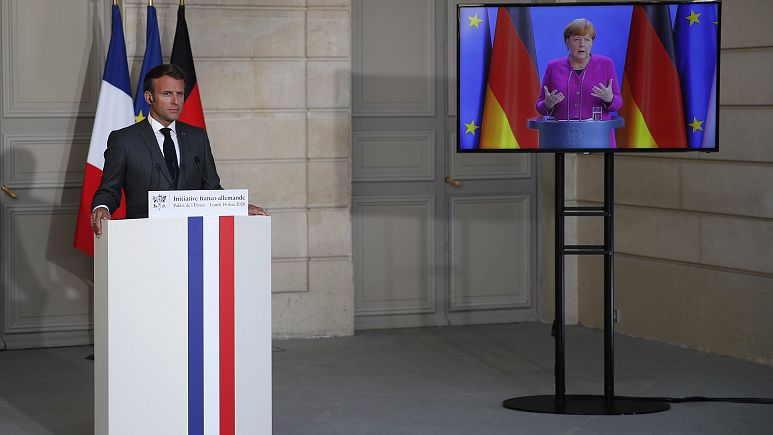Analysis: Will Europe unite around the EU's coronavirus recovery plan?

Bank deposits are surging across Europe as people respond to the crisis battering the continent’s economies.
From France to Italy, tens of billions of euros were deposited in banks as citizens worried about their financial futures and put their money away to cope with an uncertain future.
In Germany, things are a little different. Banks actually saw deposits fall, as huge cash withdrawals were made. Why? Germans tend to prefer to hold their savings in cash during a crisis; a similar phenomenon occurred at the height of the 2008 financial crisis. The central bank reported that cash in circulation rose by a massive €39.7bn since the start of the year. Some, it seems, are literally stuffing cash under their mattresses.
Whether the cash is at home or at the bank, it is yet another sign that confidence has fallen; that we, as customers, may not help drag Europe’s economy out of its biggest slump in the best part of a century.
This news, among a deluge of worsening forecasts, is piling pressure on the European Union to come up with a long-term recovery plan. But the battle lines are drawn. Trying to wade through it, we find the European Commission President, Ursula von der Leyen, who will present her coronavirus recovery fund proposal on Wednesday. Can she come up with a plan to unite all?
EU rescue plan
On the one side, you have Germany and France who have joined forces to push for a €500 billion EU recovery fund. The money would be raised by the European Commission borrowing on capital markets and would be used to support EU spending through grants rather than loans to national governments.
On the other side, the so-called Frugal Four - Austria, Denmark, the Netherlands and Sweden - who have just come up with a counter-proposal opposing grants and endorsing a ‘loans for loans’ approach, coupled with reforms.
Can they be won over? Their counter-proposal seems to be just that, a proposal, rather than a red line in the sand. A deal will have to be reached. And, even though any member state could eventually veto it, which leader would want to scupper an agreement that Europe desperately needs in the middle of a pandemic? The combined weight of Germany and France will weigh heavily.
'Give Europe resources'
So Von der Leyen’s announcement will be a defining moment in Europe’s response to the crisis and could also mark a significant change in EU integration, with the Commission borrowing on the capital markets on a scale not seen before.
As Peter Chase, a senior fellow at the German Marshall Fund of the United States, said: “Finally, they get it: If they want Europe to do things, they’ve got to give Europe resources.”
There are still many unanswered questions, especially how the loans will be paid back and how the money will be distributed. Also, the conditions attached to EU support - especially the idea around economic recovery reforms - will be a crucial part of the debate.
But the debate can’t go on for too long. Brussels was accused of being too slow to react when this crisis hit, and it can’t afford not to lead the recovery - a recovery Europe desperately needs, a recovery it can’t around wait for.
Darren McCaffrey is Euronews' political editor.